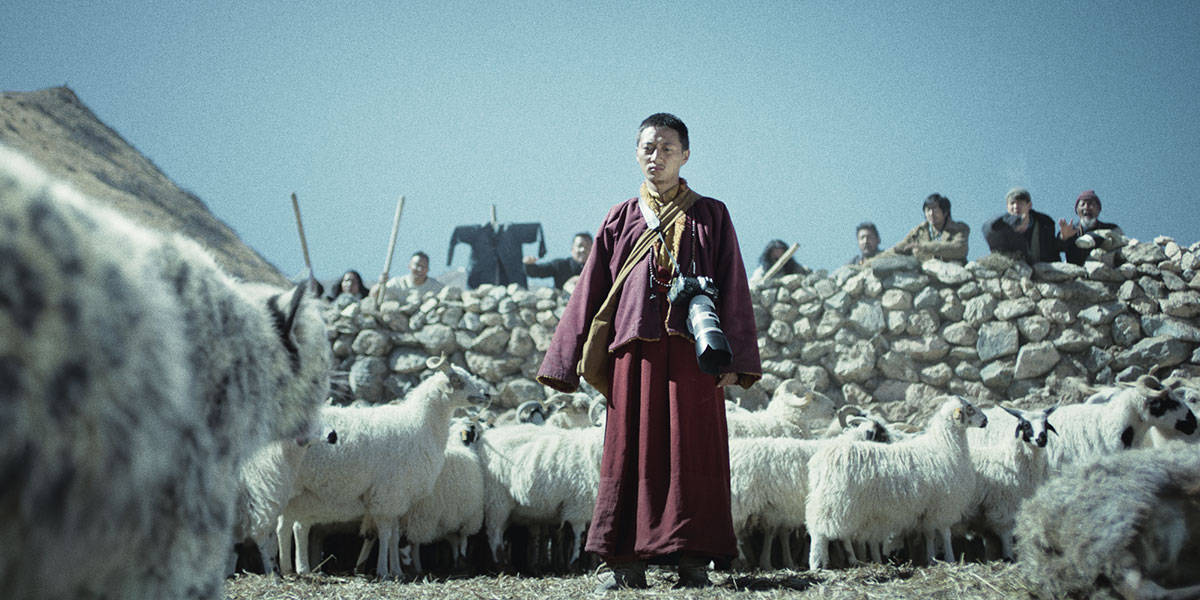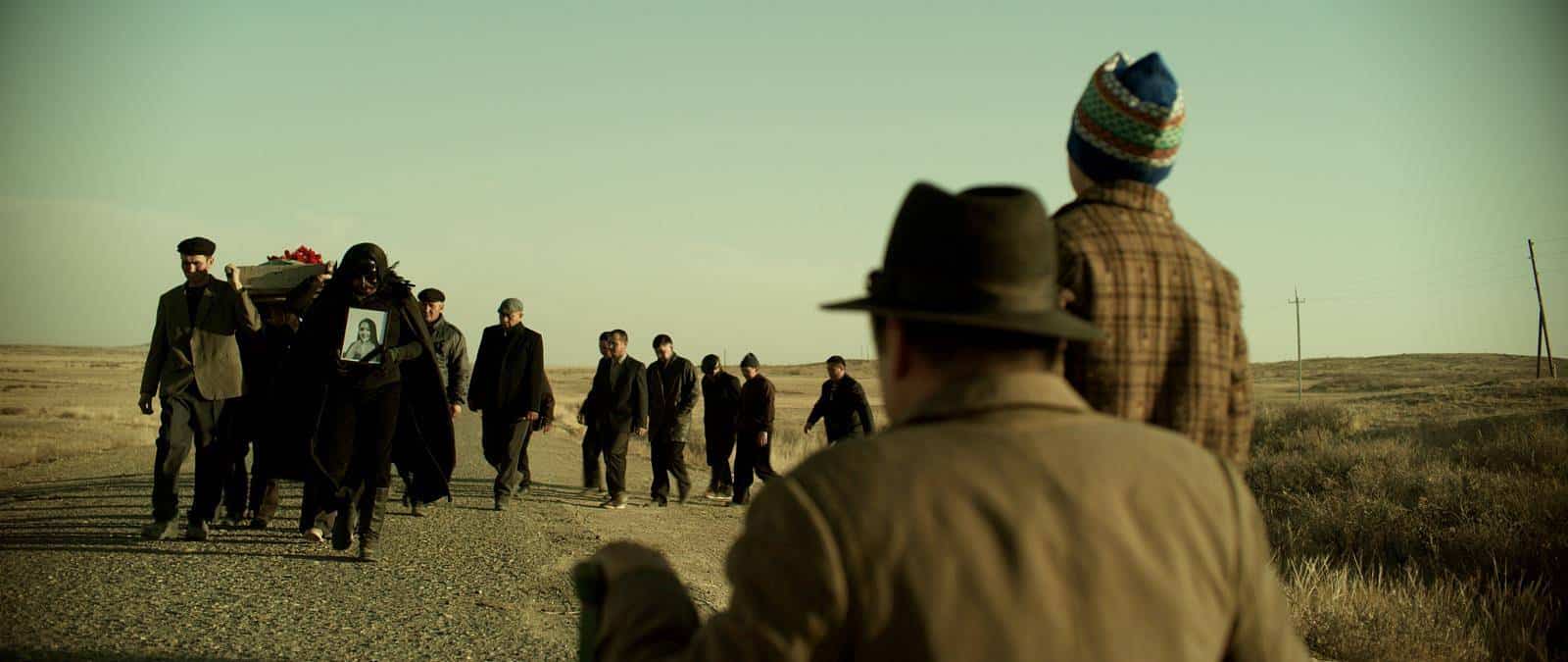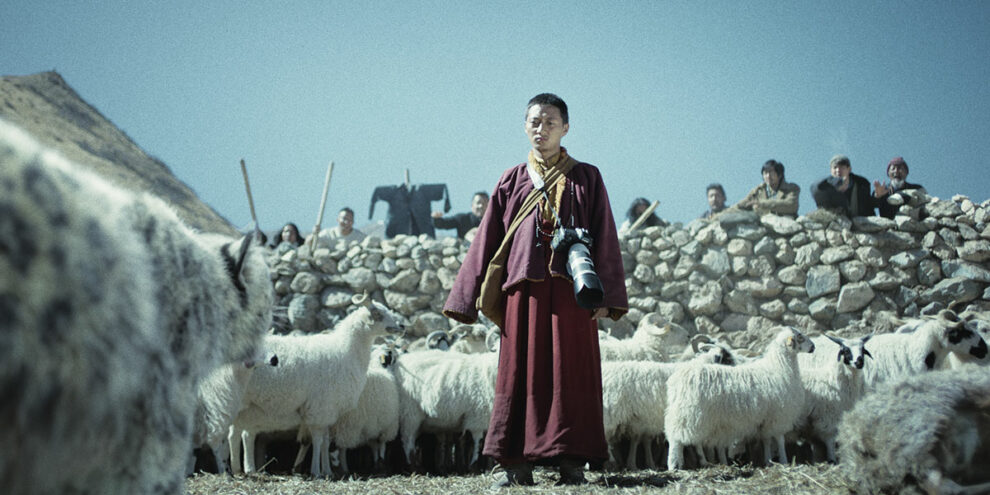Vesoul continued in its usual style of programming this year, adding, however, three very interesting sections for 2024, one focusing on Malayalam cinema, one on Taiwanese cinema and one on NETPAC winners, which allowed the programmers to include a number of movies of quality without being restricted by the prerequisites of the films included in the competition section. The inclusion of films from countries from the former USSR, as in the case of Uzbek “Sunday” and Kazakh “Scream” was once more the cherry on the top, in one of the best years in terms of film selection for the festival, which celebrated its 30th edition this year. Lastly, the screening of “Snow Leopard” the last film of the recently deceased Pema Tseden was the most touching moment of the whole festival, with the presence of the protagonist, Tetsen Tashi, definitely adding to the overall impact.
Without further ado, here is our coverage of the festival in random order.
1. Film Review: Sunday (2023) by Shokir Kholikov

Although the lack of tension and the nature of the movie makes it one essentially exclusively addressed to more mature audiences, “Sunday” is a very well-directed, well-shot, and well-acted movie that is bound to satisfy all viewers, also due to the smart humor and way of presenting its comments. (Panos Kotzathanasis)
2. Film Review: Work to Do (2023) by Park Hong-jun

“Work to Do” is an excellent movie that manages to show a rather dramatic phenomenon from a perspective very rarely depicted in cinema, while retaining its sense of realism and measure throughout its duration. (Panos Kotzathanasis)
3. Film Review: All Ears (2023) by Liu Jiayin

Liu Jiayin directs a meticulous film, which essentially functions as a lesson in (script) writing on a number of occasions, while making a number of comments, with the most central one being the aforementioned about being normal. Regarding the first aspect, the way Wen Shan goes about preparing his eulogies is the main source, with the board in his house and the discussions he has, highlighting his procedure in the best fashion. At the same time, this aspect is connected to the second one as all of the people he writes for, despite their differences, are actually ‘normal' people. As such, the question of whether the lives of ordinary people can become the material of a movie that is remarkable lingers above the whole movie, although the answer in the end, based on the particular movie, is not exactly clear. (Panos Kotzathanasis)
4. Film Review: Snow Leopard (2023) by Pema Tseden

Tseten Tashi as Nyima is very convincing in his debut, essentially playing the opposite of Jinpa, with his meaningful silences, his gaze, and his interactions with the snow leopard all being impressive to watch. “Snow Leopard” is an excellent movie and a rather fitting goodbye for a filmmaker who left the world at the top of his game. (Panos Kotzathanasis)
5. Interview: Tetsen Tashi
6. Film Review: Maria (2023) by Mahdi Asghari Azghadi

“Maria” is a captivating thriller noir that remains interesting from beginning to end, while making a very intriguing comment about the impact of cinema. (Panos Kotzathanasis)
7. Interview: Mahdi Asghari Azghadi

So, do you think that your movie will have a bad or a good influence?
Yesterday, there was one lady who saw the film and told me that my movie brought her back to the time when her husband was beating her. She was really sensitive and after watching the movie, she felt she had something in common with the girl in the film, and that made her a little warm inside. Of course, the story of this lady, who also told about how her husband took her children away, is not the same as the one of the movie but she had the same feelings as the movie. I think that any person who watches “Maria” can interpret them in their way. This is the best experience for me. Regarding how the viewer will perceive the movie, it depends on what has happened in their own life. I feel that most of the people will feel good after watching this movie.
8. Film Review: Daughter of the Nile (1987) by Hou Hsiao-Hsien

“Daughter of the Nile” is a film about young people trying to find their version of life, their definition of culture somewhere between ideals of the past and the more attractive present. It is a movie which carries a distinct notion of these events being unique in the way the will never comes back, but having been repeatedly looked at like pictures in a photo album, an awareness of time moving on an events destroying any sense of idyll or happiness one has build for himself, whether it is an escapist fantasy or a more grounded sense of togetherness when starting a business with friends. In the end, just like the teenage protagonists of Godard and Truffaut these “orphans of the world” also carry a sense of doom with them, a feeling that all of this is just temporary. (Rouven Linnarz)
9. Film Review: Scream (2023) by Kenzhebek Shaikakov

“Scream” could have been a bit better in terms of the approach to the narrative and the structure of the script, but the sum of the rest of its elements definitely compensate, resulting in a movie that is quite interesting to watch, also for this rather unknown part of history. (Panos Kotzathanasis)
10. Interview: Kenzhebek Shaikakov

The women appearing in the film are quite different looking from the rest. Why is that, what is the symbolism there?
This is a movie shot in the style of Kusturica and Kaurismaki and that is why it includes many caricatures, and that is also why the women are a bit mad. During the Soviet Era, people would believe anything the government said, they were like kids essentially. In this film, we are watching the sales woman talking about Indian movies and people listening and crying to her stories, which moves in the same path essentially. The woman in red is a symbol for Mother Earth. She is beautiful, as nature is, and is willing to give everything, but people don't appreciate her, instead exploiting her. That is why in the end she flies away and leaves the upcoming generation with all the problems of the land. This is why I also left the ending open, so anyone can theorize what actually happened based on their own opinion.
















